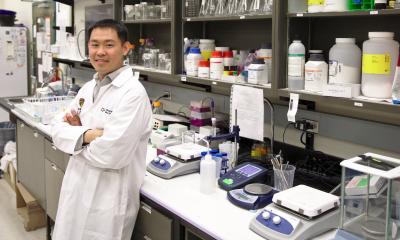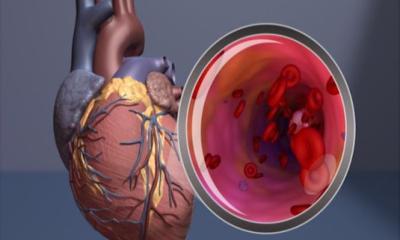Image source: Adobe Stock/pathdoc
News • Unjustified disparities
Sensitive women, stoical men? How gender stereotypes sabotage medical pain treatment
Sensitive women and stoical men are the prevalent images of people in chronic pain. Unwarranted differences in medical treatment may result, as a University of Gothenburg doctoral thesis emphasizes.
Approximately a fifth of the Swedish population have long-term pain that can affect their quality of life, work capacity, relationships, family life, and leisure activities. Treatment of chronic pain has been described as a challenge to patients and health professionals alike. Gender norms, stereotypical notions of how men and women are — or should be like — can affect how health care staff treat people in pain. This, in turn, may result in medically unjustified disparities in treatment of men and women, or “gender bias.”
The present doctoral thesis, in the area of community medicine and public health, describes the author’s investigation of existing gender norms linked to long-term pain and how gender norms, chronic pain, and psychosocial resources such as social support are interrelated.
Recommended article

Article • Men, women, nonbinary health
Gender medicine in focus
Male and female patients should not receive the same treatment - but that is just the beginning: Increasing awareness of patient diversity leads to changes in diagnostics, therapy regimen, but also data management. Keep reading to find out more.
The subject of how men and women with chronic pain are described in research was studied in 77 scientific articles. The results show that women were portrayed as sensitive and expected to learn to adapt their ways of life to the pain. Men, on the other hand, were described as enduring pain and expected to search for the cause of their pain, and its treatment, outside themselves.
When a population sample of 4,010 individuals were examined, unexpected gender patterns — “gender norm disruptions” — emerged. Among the studied factors were self-assessed practical and emotional social support and the associations between social support and frequent pain. The follow-up period was one and a half years.

Image source: University of Gothenburg; photo: Frank Palm
Unexpectedly, a lack of emotional social support proved to be a greater risk factor for men than for women. Men with weak emotional social support were twice as likely to develop frequent pain as men with strong support of this kind. Otherwise, emotionality is usually associated with women and femininity. For women, a lack of practical social support was a major risk factor. Women whose practical support was weak had a 62% higher risk of developing frequent pain than those who enjoyed strong support.
One result, in line with prevailing gender norms was that women enjoyed stronger practical social support than the men. However, this applied only to women without frequent pain. In the group with frequent pain, women did not have stronger practical social support than men. Another result shows that the men with frequent pain and strong emotional social support had a lower chance of no frequent pain at follow-up than men with weak support.
The author of the thesis is Anke Samulowitz, who gained her doctorate at Sahlgrenska Academy, University of Gothenburg. A physiotherapist and psychologist, she works at Region Västra Götaland’s “Centre for Equity in Health Care.”
“Awareness of prevailing gender norms and unexpected gender patterns can help health care staff to counteract gender bias and offer equal care that’s based more on the individual’s needs. Becoming aware of gender norms and gender norm disruptions may also enhance quality in research and lead to new strategies in preventive care,” Samulowitz says.
Source: University of Gothenburg
07.02.2023










